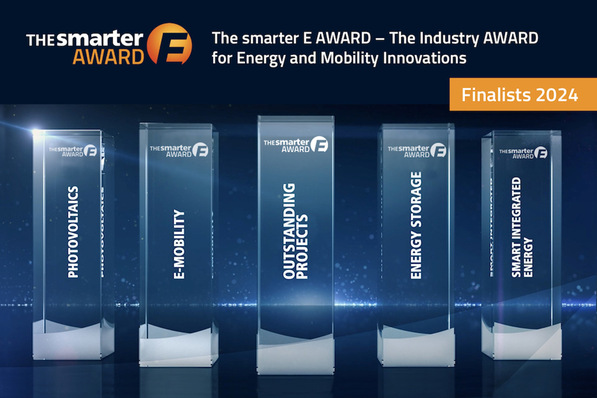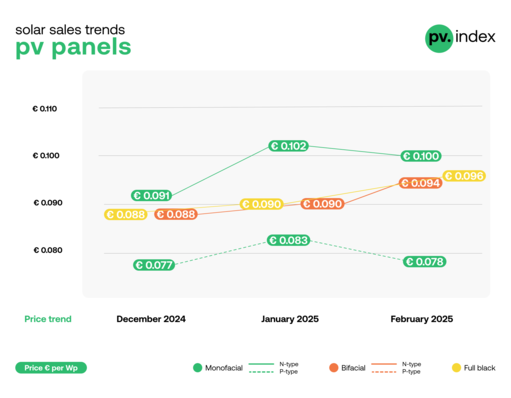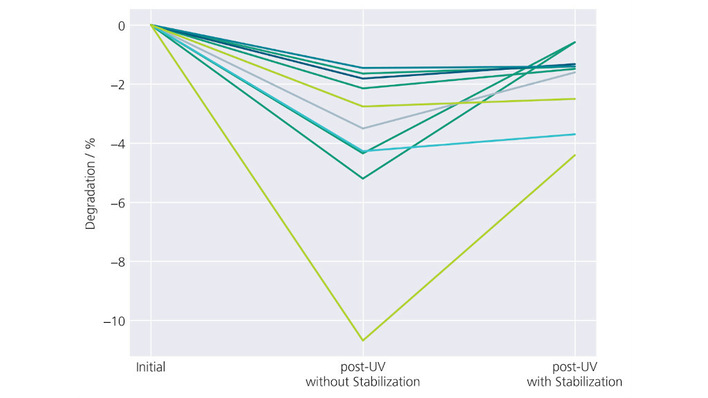German Solar Engineering: The message with which Luxor Solar approaches their customers could not be clearer: If you build your PV installation using solar panels from this supplier, you can rely on getting solid German workmanship.
Of course, such statements have to be backed up: Volker Leh is the CEO of Luxor Solar and he is convinced that “the quality of our panels is a key factor in why we continue to have a strong position in the market.” Thomas Dessoi, head of sales, adds: “Our first customer from back in 2004 is still buying from us. There are many installing companies that have been sourcing their panels from us for years.”
For years: In other sectors, there is nothing to that. In photovoltaics, this constitutes a dramatic transformation; much has changed over a short period of time: “In the early years, one was happy for any panel that the market would provide,” Volker Leh recalls. “That was true both for our customers and for us as suppliers.” Nowadays there is a huge supply. However, especially in Germany, there has been a significant slump in demand in recent years.
A pioneer from Asia
Volker Leh first encountered PV in the 1990s, found his job in the early 2000s, in the sales department of a system supplier in southern Germany. He remembers that the work was dominated by two major considerations: First, “it was deemed important to build long-term relationships with customers. Our customers were supposed to be able to rely on getting solid products at a decent price. And second, they had to be sure that they would be supplied as needed. That was far from easy then, as there were always too few units available on the market.”
This led Volker Leh and his employer at the time to the conclusion of opening up additional procurement channels. “It was our goal to create greater supply security and to build a brand that was chiefly oriented at installing companies. It was important for us that the medium-sized companies among our customers had a partner in Germany that they could be on an equal footing with.”
He was also certain: “The closer we are involved with the way our panels are manufactured, the greater our influence on their build quality. This allows us to grant longer warranties.”
Volker Leh also travelled all over Asia, and after closely considering a number of panel factories eventually contracted two of them. Thus in 2004 Luxor Solar was born. “No matter where we produce – the equipment that our suppliers use has to be of top quality and state-of-the-art,” the CEO explains. “The same is true for the components used. This allows us to ensure that the panel always is of equally high quality, no matter where it was produced.”
Getting involved in self-consumption early
In 2011 the German and other European markets collapsed. The fact that Luxor Solar managed to get through the rough patch so relatively quickly has, according to Volker Leh, a lot to do with the streamlined organisational structure and a solid equity quota of more than 60 percent. “We do not have to depend on banks,” he says self-confidently. “Especially in hard times, this is invaluable.”
On the other hand, they had gotten into the issue of self-consumption of solar electricity at an early stage. “When the great slump hit the sector, we decided to investigate how the market was going to change,” the expert says. “Of course, it soon became clear that because of steadily rising electricity prices, self-consumption would become more significant.”
It was also clear that commercial enterprises would be the first to whom that issue would be important. “Especially medium-sized enterprises, to whom electricity is not available at industrial rates, would benefit from self-consumption.”
But that still had to be made clear to potential commercial customers, and so a tool for calculating the profitability of self-consumption was developed. At the same time, Thomas Dessoi was looking for partner installation companies that were interested in getting commercial enterprises excited about that topic.
Close ties to the installation companies
And he developed a programme of premiums for particularly active partners: “As part of our market analysis, we were wondering if we should establish our own comprehensive distribution network or rely on the installation companies affiliated with us.” What resulted was a clear three-stage distribution scheme and close ties to the customers through premium services.
Another element of the new sales offensive is also a cooperation with two renowned wholesalers. Krannich Solar is situated in the southeast of Germany, still a hotspot for solar installations.
The second one EWS is based in Handewitt near the Danish border. EWS is well-established in its northern region and in the countries of Scandinavia. They and Luxor Solar agreed on a close cooperation for winning new customers. “Our goal has always been to build our business relationships based on partnership, long-term and on an equal footing,” Thomas Dessoi states. “This allowed us to establish a customer base which has been a solid foundation, and still is. It includes two system suppliers and over 80 installation companies, eight of which are premium partners.”
In 2014, these efforts were already having a positive effect business performance. In Germany alone, Luxor Solar was able to increase the volume of panels sold by 30 percent compared to 2013. Other manufacturers of solar panels are still struggling to cope with the earlier collapse in sales.
These days, 80 to 85 percent of Luxor Solar’s panels installed in Germany go to projects where self-consumption is a significant factor. “And we have both: partners who concentrate on fully commercial projects and those who almost exclusively deal with one family homes,” Volker Leh says. “Our experience is: Both works well, if you market it actively.”
Actively market together with partners
Luxor Solar’s next step will be to focus on winning project planners and investors – such as agricultural cooperatives, municipal utilities or investors planning to build large solar parks or equip large roofs with solar panels.
“Three things are important to this kind of people: solid finance, Germany as the place of jurisdiction and production within the EU.” Motivation enough for Volker Leh to try to obtain Creditreform’s certificate of credit worthiness CrefoZert. “We achieved this in January 2015, and it has given a further boost to our business.”
Another factor is the quality of the products. To date, panels with a combined output of about half a gigawatt have been installed. According to Luxor Solar, the rate of complaints has been below 0.3 percent.
Currently, Luxor Solar gives a 12-year warranty on their products. If a panel has defects in material and workmanship during that period, the customer is eligible to have it replaced. On top of that, they grant a progressive performance warranty: At the end of 25 years, cells still have to deliver at least 85 percent of their original output.
Bring together photovoltaics and glass technology
Now Volker Leh wants to go one step further: “In the first quarter of 2016, we came out with a product that is wholly novel from a technological standpoint, combining the latest developments in glass manufacture with those in PV,” he reports. “For this product, we will extend the warranty to 30 years – both on being free of defects and retaining at least 85 percent of output of all cells.”
At the same time, the company is pushing to become even more international. After all, there are many markets outside of Europe which show promise of dynamic developments in the near future. “Turkey, the Middle East as well as Latin and South America,” are some of the regions Leh mentions. “We have already managed to win very strong partners in North Africa, from Morocco and Tunisia to Egypt and all the way to Jordan and Lebanon.”
Furthermore, as of early 2016, Poland has an interesting compensation system for smaller installations, which should give new momentum to the market. “And do not forget Japan,” Volker Leh adds. Luxor Solar has a subsidiary there. “Self-consumption is also gaining ground there. We are currently involved in a number of projects, mostly on a scale of less than 50 kilowatts.” (Herbert Grab/HS)
Did you like “As solar panel producer Luxor Solar flew below the radar and continues to grow”? May be you are also interested in “Solar power and battery storage: Selling solar PV to the Danes” (interview with EWS-CEO Kai Lippert) or “IHS Markit: Strong global demand for higher efficiency modules is driving PERC and next generation of n-type cells”. Good news for your business you find here: “Portugal/Spain: Storage and self-consumption main new market drivers - removal of minimum price crucial Frank Niendorf says”.







